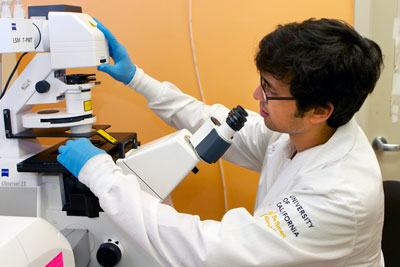Committee & Oral Qualifying Exam

The Doctoral Committee is a formal council that advises students on their doctoral research and, ultimately, decides whether a student is able to graduate. It can also mediate in case a conflict arises between you and your primary mentor. Therefore, it is very important to choose your committee carefully.
The Oral Qualifying Exams is essentially the first meeting of a student’s doctoral committee. The doctoral committee must be nominated and approved by the Graduate Division before a student can complete the Oral Qualifying Exam requirement. Once the exam has been passed, the student is officially recognized as a PhD candidate (Advanced to Candidacy). The exam must be taken by the end of the student’s third year.
Below are instructions on how to form your doctoral committee and complete your oral exam:
There are several rules and regulations that should be taken into account when forming a doctoral committee. The NSIDP has adopted the UCLA campuswide minimum requirements for Doctoral Committee Membership, effective Fall 2016.
- A doctoral committee is made up of the student’s PI and at least 3 other faculty members.
- Two of the four committee members must hold the rank of Professor or Associate Professor.
- At least the Chair or two Co-Chairs must be an NSIDP Faculty Member. Consult the NSIDP website for membership confirmation or with the Graduate Advisor.
- Additional members beyond the required four can be on the committee as long at the minimum membership requirements are met.
For more detailed documentation, see:
https://grad.ucla.edu/academics/doctoral-studies/minimum-standards-for-d...
To form a committee, students should brainstorm a list of potential candidates with his or her PI. Send the Graduate Advisor the list of candidates for approval. Once approved, contact each candidate to see if he or she is willing to serve on the committee. Often times, it is helpful to include a research proposal when asking a faculty member to serve on a committee. Then, confirm with the Graduate Advisor that everyone has agreed to serve on the committee. Once the committee has been approved by the Graduate Division, the exam can be scheduled. At the conclusion of the exam, results will be forwarded to the Graduate Division for recording and a $90 Advancement to Candidacy Fee will be assessed on the student's BruinBill.
The oral qualifying exam is a time for the student to present his or her research plan to the thesis committee. Prior to the meeting, the student should prepare a 5-10 page research proposal and distribute it among the committee members. This written proposal should follow the basic format of an NIH grant with well-defined Specific Aims, Methods, and Experimental Design sections (an NRSA submission suffices). The oral exam is a formal powerpoint presentation (45 mins – 1 hour) explaining your research plan. Students are responsible for organizing the meeting and bringing evaluation forms for each committee member (which are available via the Graduate Advisor).
It is typical that students complete the oral exam despite little data or progress on their research plan. The purpose is not to assess how much you’ve done, but what you will do. Therefore, it is important to complete these exams early to familiarize your committee with your work. Their input is essential because they will judge whether your research qualifies you for graduation. Moreover, the better the committee knows you, the better it can provide you with meaningful feedback and advice.
Students must formally meet with their doctoral committee yearly to discuss their progress. It is highly encouraged for students to keep their committee highly involved throughout their doctoral research because the ultimately decides when a student graduates.

